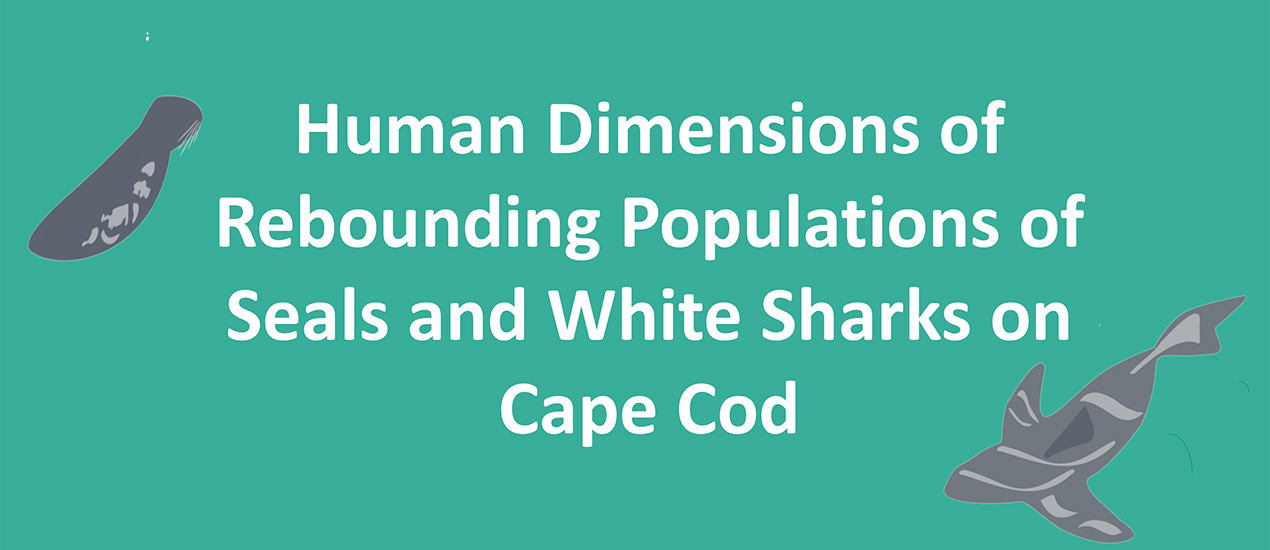
This collaborative project generated knowledge about the views and experiences of residents, tourists, and commercial fishers regarding seals and sharks on Cape Cod. Investigators used surveys to measure stakeholder beliefs, attitudes, and perceptions of seal/shark interactions, management, and conflict mitigation strategies. The knowledge gained from this survey will enable managers, policy makers, and non-governmental organizations to advance marine conservation, promote responsible stewardship, and foster co-existence of humans, seals, and sharks on Cape Cod.
Quick links:
Report downloads
Download the full report
April 11, 2022
Download the executive summary
April 11, 2022
Press conference materials
- Press release (4/11/2022)
- One-page summary (4/11/22)
Recording - April 11, 2022

Frequently Asked Questions
Video Interviews
Interview with Dr. Andrea Bogomolni. Learn about the natural history of seals in the Cape Cod region and what scientists are doing to better understand their population, habitat use, and more. Learn more about seals.
Interview with research scientist Megan Winton. Learn about white shark natural history and research. Learn more about sharks.
More resources at www.sealsandsociety.com
What do I do if I see a marine animal in distress or entangled in a foreign object?
Do not touch it or move it. Reporting a sick, injured, entangled, stranded, or dead animal is the best way to make sure professional responders and scientists know about it and can take appropriate action. Numerous organizations around the country are trained and ready to respond. If you see a sick, injured, stranded, or dead marine mammal or sea turtle, immediately contact your local stranding network, which can be found HERE.
Photo Gallery - beach surveys
Principal Investigator
Jennifer Jackman, Salem State University
Co-Principal Investigators
Owen Nichols, Center for Coastal Studies
Lisa Sette, Center for Coastal Studies
Stephanie Wood, Univ. of Massachusetts-Boston
Melissa Sanderson, Cape Cod Commercial Fisherman's Alliance
Stephanie Sykes, Cape Cod Commercial Fisherman’s Alliance
Cynthia Wigren, Atlantic White Shark Conservancy
Megan Winton, Atlantic White Shark Conservancy
Marianne Long, Atlantic White Shark Conservancy
Allen Rutberg, Center for Animals and Public Policy of the Cummings School of Veterinary Medicine at Tufts University
Seana Dowling-Guyer, Center for Animals and Public Policy of the Cummings School of Veterinary Medicine at Tufts University
Research Team
Rachel Bratton, University of Massachusetts Boston School for the Environment
Catherine Cummings, Tufts University Center for Animals and Public Policy
Vanessa Bramante, Salem State University
Victoria Kako, Salem State University
Emily Hanlon, Salem State University
Derek Baseman, Salem State University
Nikki Brewster, Salem State University
